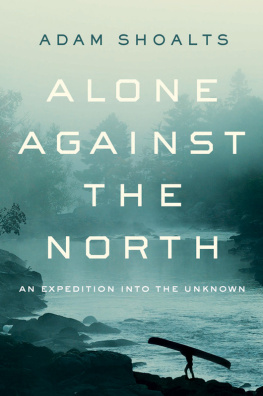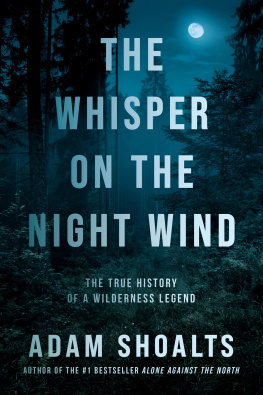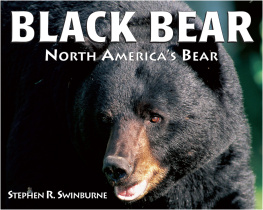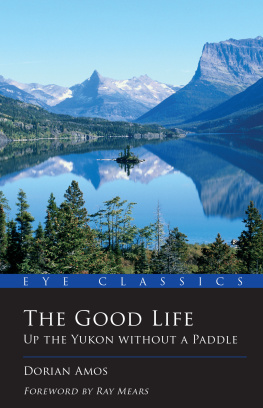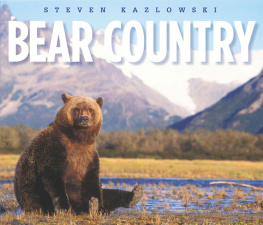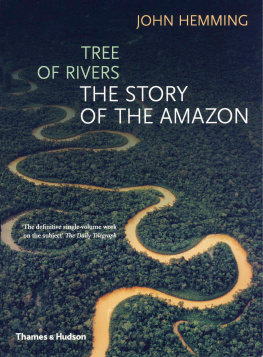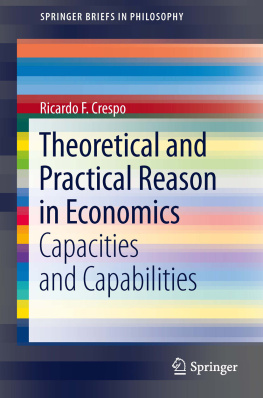ALONE AGAINST THE NORTH


FELLOW, ROYAL CANADIAN GEOGRAPHICAL SOCIETY
ADAM SHOALTS
ALONE AGAINST THE NORTH
AN EXPEDITION INTO THE UNKNOWN

To my fellow explorers, in spirit and deed.
PROLOGUE

Here we have reached the remotest region of the earth a wilderness without a footprint.
Aeschylus, Prometheus Bound, fifth century BC
A HEAD OF US LAY the pitiless expanse of frigid ocean known as Hudson Bay. Behind us lay countless miles of windswept tundra, trackless swamp, and impassable muskeg. Half-famished polar bears roamed the desolate coastline. It wasnt a place one should travel aloneor at all, really.
For the past two weeks my friend and expedition partner Brent Kozuh and I had been hacking and paddling our way across this still largely unexplored wilderness, battling hypothermia and insufferable clouds of mosquitoes and blackflies.
Once we reached the bleak shores of Hudson Bay, Brent finally cracked.
I had seen this moment comingfor the past few days he had fallen into a stupor, his resolve corroded by the millions of bloodsucking insects and the grimness of our journey. We were ankle-deep in icy water, dragging a heavily laden canoe behind us while staggering against fierce winds sweeping off the sea when Brent finally seized up altogether.
Adam, he said mechanically, I cant go on I want to go home.
We cant quit. We havent reached the river yet, I replied.
I dont care about the river. This is about survival. Let me have the satellite phone. Im going to call a pilot and try to get him to land here.
The wind howled across the treeless tundra, biting into our bearded faces. For a fleeting moment, I thought about Brents proposal to abandon the expedition. But as I stood there shivering in the salt water, I felt I would never be able to live with failure. I needed to reach the river we had come to find.
No, I said shaking my head, quitting isnt an option.
What does it matter? Weve done enough, Brent said.
Weve barely done anything.
Brent didnt reply. To him, the nameless river we were seeking wasnt some priceless prize, but just another subarctic river like all the others we had paddled since we began our journey. To me, however, this river represented something moreit was a mystery, and a promise of a pristine place untouched by the modern world, a river so obscure that no known person had ever previously explored it. That made it irresistible. But I could see that all Brent had in mind when he thought of another river was more discomfort, more cold, more swarms of mosquitoes and blackflies.
So I tried to appeal not to the explorer in him, but to the athlete. To quit now, I told him, would be to admit defeat. It would open the door for someone else to explore the river instead of us. Brent slouched down against the canoes oak gunwale. No one in their right mind is ever going to do that.
Someone has to do it, I replied.
Brent sighed, It doesnt have to be me.
My feet were numb from standing in the cold water. With the sun sinking below the horizon, I was keen to get moving. Lets push on a little farther. Well make camp, get a fire going, warm up, and then youll feel better.
Brent didnt budge. I wont feel better until Im home on my couch with a roof over my head.
Theres the rest of your life for that. This is a chance to do something different.
Brent just stared at the canoe. The wind continued to howl around us. We both shivered in the cold. Snow geese flapped across the sky. I scanned the tundra in either direction. There were no bears in sight.
Each day feels like an eternity out here, mumbled Brent. Its freezing, Im hungry, tired, and wet. There are polar bears all over the place, and weve no idea what might be on that river.
Things will get easier. Weve just had some bad weather, I replied, but without much conviction, knowing that things would likely only get worse.
Adam, Brent said slowly, sometimes youre insane.
I cant do this alone.
Brent shook his head, I cant do this at all.
Clearly, appealing to Brents competitive side would now get me nowhere. So I appealed to the one thing I thought he still valued: If you quit now, youll have to pay for the entire cost of the flight out of here. The Geographical Society wont cover any of it. Itll cost you a fortune.
Id gladly spend my entire lifes savings to get out of here.
Youd really leave me alone in polar bear territory? I was grasping at straws.
Theres no reason you cant get on that plane with me.
Not until weve succeeded.
Brent just kept staring at the frigid sea. I was sympathetic. I knew he was cold. I knew the truth of his wordsa day can drag on endlessly when youre hungry, exhausted, and wet. When you have only the dimmest sense of what lies ahead. When polar bears are stalking you. I knew it must be hard to put one foot in front of the other if you arent drawn magnetically toward your destinationas I was.
Brent tossed his hands in the air. We can just lie about it. We can say we explored the river. His expression finally showed some life.
Brent!
What?
We obviously cant do that.
Whod know?
Wed know.
It became clear that nothing would convince Brent to push on deeper into the wilderness. His will was broken, his mind made up. Now I had to accept the inevitable. To argue any further while standing idly in the estuary would just give us both hypothermia. All right, I said after a very long pause, well head back to the old goose hunting shack and you can try to contact a pilot.
With that, we grabbed hold of our loaded canoe and dragged it back upriver, wading through frigid water and fighting our way up several sets of rapids to the relative safety of a dilapidated hunting cabin. The next day, I knew, the pilot would arrive for Brent but I wouldnt be getting on that plane with him. Daunting as I found the prospect, I would have to remain behind to somehow finish the expedition on my own.
As of tomorrow, Id be alone against the North.
INTRODUCTION

I am tormented with an everlasting itch for things remote. I love to sail forbidden seas, and land on barbarous coasts.
Herman Melville, Moby Dick, 1851
I THINK I ALWAYS KNEW I was destined to become an explorer. Joseph Conrad, the great Victorian novelist and an experienced mariner, recalled that in his childhood he liked nothing better than to stare at maps and dream, as he put it, of the glories of exploration. That was in the 1860s. My childhood consisted of much the same thing. Only, unlike Conrad, I was told that I was born in the wrong century to be an explorer. I was told that there was nothing left to discover and that if I had a passion for adventure and the natural world, I should look into a career as a park ranger or wildlife biologist. But whether from stubbornness or stupidity, I kept dreaming of exploring. The explorers I read about in history books loomed large in my imagination: they were heroic adventurers who undertook dangerous journeys sponsored by geographical societies to navigate wild rivers and map uncharted lands. I aspired to do precisely the same thingno matter how improbable this goal seemed to others. And succeed I did. By the age of twenty-five, I was leading an expedition to a river that was so remote it had never been explored or even named. This book recounts that adventure and my other expeditions to unexplored rivers for the Royal Canadian Geographical Society.
Next page
